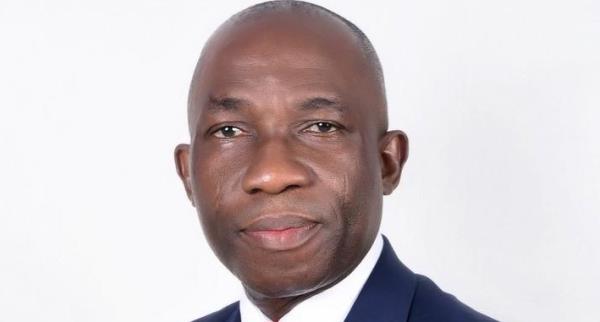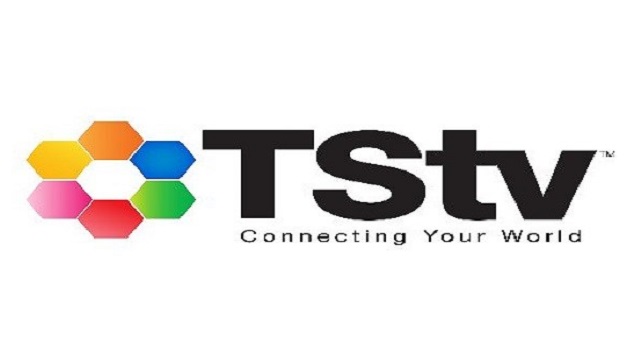Broadcasting
NCC, AVCNU Advocate IP Policy for Nigerian Universities

The Nigerian Copyright Commission (NCC) and the Association of Vice Chancellors of Nigerian Universities (AVCNU) have agreed on the urgent need to formulate a model intellectual property (IP) policy for the benefit of Nigerian tertiary institutions.
This understanding was reached during a consultative meeting between Mr. John O. Asein, Director-General of NCC, and Professor Yakubu Aboki Ochefu, Secretary-General of the AVCNU, at the Secretariat of AVCNU in Abuja recently.
While the Director-General underscored the need for a national IP policy to fast-track the development of Nigeria’s knowledge economy and entrench international IP best practices in the country’s university system, the Secretary-General of AVCNU called on the Commission to provide a draft IP policy for Nigerian universities for consideration and adoption by the relevant authorities of the universities.
The Director-General, who paid a courtesy call on the newly appointed Secretary-General of AVCNU at its Secretariat in Abuja, also called on the National Universities Commission (NUC) to make it mandatory for all Nigerian Universities to have a functional IP policy as obtains in most advanced countries.
In the words of the Director-General, “It is unacceptable in today’s knowledge and intellectual property driven society for the very citadel of knowledge not to have clearly defined standards of engagement governing the institutions, faculties and students.”
He lamented the high rate of IP theft and abuse including copyright infringement and plagiarism in the Universities. He also decried the low level of patents despite the enormous research potentials of academics across the different fields of science and technology.
“Nigeria has the requisite human and intellectual capital to solve most of its problems and IP is one of the keys to unlock these potentials and stimulate the application of knowledge as catalyst for growth and development,” he concluded.
Speaking on the specific issue of copyright abuses, particularly the rampant unauthorised photocopying that goes on in and around universities, the Director-General solicited the support of the AVCNU in ensuring that students and faculties abide by the rules of fair dealing and respect for authorship.
In his remarks, the Secretary General of AVCNU, Prof. Ochefu assured the Director-General that AVCNU was committed to raising the standards of Nigerian universities to make them more globally competitive and would support any initiative to help achieve this goal.
He implored the NCC, as a major IP agency to work with other relevant agencies, experts and stakeholders to launch the process of formulating a model University IP Policy.
He agreed that considering the importance of IP as a tool for maximising research and innovation, the existence of an IP Policy should be a prerequisite for university accreditation.
He condemned the prevalence of IP theft and other abuses in Nigerian Universities, calling on the NCC to intensify its awareness creation programmes for academic communities.
Professor Ochefu stated that it was important to highlight the linkage between copyright and plagiarism in the universities. He canvassed the need for a compensation mechanism for copyright owners whose works were being exploited in the Open Education Resource (OER) programme of universities to guarantee sustainability and the quality of the materials on such platforms.
Thanking the Secretary General for his commitment to the sustainable use of IP in Nigeria, Mr. Asein recalled that the AVCNU, on behalf of Nigerian Universities, had in 2017 negotiated a licensing framework with the Reproduction Rights Society of Nigeria (REPRONIG) and regretted that despite the number of universities in the country, none has signed up to the reprographic licence that was agreed.
He said it was ironical since a functional licensing arrangement would provide additional income for university authors from the massive photocopying being carried out on and around their campuses.
He urged the AVCNU to encourage the universities to subscribe to the N500 per student per year for approved photocopying, adding, “that is a very fair baseline but for some reason, no university has implemented it and it gives us concern”.
“For the NCC, it is not only about getting the universities to pay but to benefit from the multiple streams of income that a robust copyright ecosystem provides. We, therefore, want to place the copyright system at the service of universities in a way that authors and publishers, including university presses, will always have return on their intellectual and financial investment.
“We believe that for Nigeria to have a sustainable academic culture, we must take copyright issues seriously and make books available for tomorrow,” he remarked.
Mr. Asein used the opportunity to again advocate a national policy, in line with this Administration’s stand on inclusive education that would compel all publicly funded researches and educational materials to be made available also in accessible formats for the benefit of the blind, visually impaired persons and persons who are otherwise print disabled.
Broadcasting
A Billion-Dollar Obsession in 90-Second Bites

About ₦2 billion changes hands in bets every day (KPMG Gaming Outlook 2025), driven by a 60-million-strong punter base that treats wagering as both entertainment and side-hustle. Industry revenue is on pace to hit US $3.63 billion in gross gaming revenue (GGR) by December 2025 – roughly the size of Nigeria’s entire recorded-music market.
Smartphones rule this universe: more than 90 percent of slips now start and finish on a handset, which is why the market leaders obsess over data-lite apps and USSD deposits almost as much as odds feeds.
Our Litmus Test for “Best”
To separate hype from heft we graded each book on the nine variables that still matter after the banner ads fade:
- Odds edge & market depth – average margin on EPL, NPFL and niche sports
- Live tech stack – cash-out latency, in-play uptime, streaming rights
- Payout speed & reliability
- Responsible-gaming tools (RG) – time-outs, self-exclusion, deposit caps
- Licensing strength & dispute history
- Promotions that actually pay
- Product breadth – virtuals, jackpots, prediction games, casino
- Financial resilience – operating cash flow, retail footprint, VC war chest
- Cultural traction – agent networks, grassroots sponsorships, meme power
The Heavyweights – and Why Each Owns a Piece of The Best
| Operator | What They Nail | Ticking Time-Bombs | Verdict |
| SportyBet | Biggest traffic (≈ 57 M visits / month), sub-5-second cash-outs, crazy-low EPL margin (~4.5%). | Still no retail city hubs; crash loops on older Tecno devices. | Mobile kingpin |
| Bet9ja | Heritage trust, retail agents in 20 states, jackpots like Super9ja; circa ₦10 billion monthly handle. | Dated UX; odds less sharp since 2024 revamp. | Legacy war-horse |
| BetKing | Data-driven odds, Genius Sports in-play feed, renewed deal with Gamble Alert for RG training. | Slower KYC queues at peak traffic. | RG poster-child |
| Surebet247 | NLRC Permit 0001081; cash-first agent model with mobile slip tracking; boosted welcome bonus to ₦150k; full cash-out on domestic basketball. | Android app, iOS app; livestream rights still pending. | Mobile dark horse |
| 1xBet & Betway | Global market buffet, esports, crypto options. | Offshore-licence optics; occasional geoblock glitches. | International muscle |
| NairaBet, AccessBET, Msport, Premier Bet, BetPawa | NairaBet = pioneer cachet; Msport & BetPawa blitz TikTok; Premier Bet just signed Francis Ngannou. | Each misses at least one core pillar (RG tooling, market depth or fast payouts). | Specialist niches |
Two Deep-Cut Insights the Billboards Won’t Show You
- Women are quietly reshaping the market. According to University of Abuja (“according to data from the University of Abuja”), 30 percent of urban Lagos women now gamble regularly, and a 2025 field survey found daily spend often tops ₦50,000 despite lower median income.
- Mobile-money betting dents student wallets. According to Lagos State University, mobile-money deposits explain 26.7 percent of the variance in student financial well-being – a stat that should make every platform’s RG desk sweat.
So, Who Actually Wins?
- Premier-League diehards who live for lightning-fast in-play cash-out: SportyBet wears the crown.
- Corner-shop loyalists who still like to chat with a clerk: Surebet247 Betshop nails the cash-plus-mobile sweet spot.
- Jackpot chasers who want EPL on Saturday, Ugandan Super League on Tuesday, and darts on Thursday: Bet9ja is still the Swiss-Army knife.
Punters who value self-exclusion toggles and deposit caps (you should): BetKing edges ahead.
In reality, “best” is contextual. Odds hawks, live-stream junkies, crypto degenerates and agent-network stalwarts will all point to different logos. What you don’t want is a bookie that melts down at 89′ when Villarreal finally scores.
On that front, the four names above – plus a rapidly innovating Surebet247 mobile bet shop – look built to survive Nigeria’s next data-price hike and the NLRC’s tightening audit screws.
The rest? Keep one eye on their uptime dashboards – and the other on your bankroll.
Broadcasting
Nigeria Week Ahead: Inflation, Oil and Naira in focus

By Lukman Otunuga, Senior Market Analyst at FXTM.
A flurry of high-risk events may pump global financial markets with fresh volatility this week.

Top-tier data, including US Inflation, the unofficial start of earnings season, and US Congress “Crypto Week,” among other themes, could spell fresh opportunities.
Amidst this, uncertainty over global trade will add to the mix after President Donald Trump threatened 35% tariffs on the EU and Mexico over the weekend.
Regarding US inflation, this may impact bets around Fed cuts in the second half of this year. Markets are forecasting CPI to rise 2.6% from 2.4% in the prior month, with core CPI rising to 2.9% from 2.8%. Signs of rising prices may shave bets around the Fed cutting interest rates – boosting the dollar as a result.
Closer to home, Nigeria’s June CPI data due July 15 is expected to show signs of cooling inflationary pressures. This could offer some relief to the Central Bank of Nigeria (CBN) which aggressively hiked interest rates throughout 2024. Inflation is expected to have eased to 21.4% year-on-year from 23% in May – marking the 4th consecutive month of decline. However, the slowdown is largely a technical adjustment aided by the recent gains in the Naira amid higher non-oil exports and a weaker dollar.
The CBN is scheduled to meet later this month and will most likely keep rates unchanged at 27.5%.
One key challenge for the country will be how to re-tweak its budget for lower oil prices. Indeed, the budget was based around oil production at 2 million barrels and oil prices of $75. Brent is trading around $70 with the nation producing 1.544m b/d of crude in May according to OPEC. Nigeria is hoping to raise production to 1.9m b/d by the end of 2025. But its impact on the economy may be muted if oversupply and tepid demand keep oil prices subdued. Brent is up 4% this month but still down over 6% since the start of 2025.
Broadcasting
EFCC Re-Arraigns Echefu, TStv CEO for Allegedly Defrauding Ex-Minister of N1Bn, $1.3m

Bright Echefu, chief executive officer, Telecom Satellites Limited (TStv), and three co‑defendants appeared before the Federal High Court in Abuja yesterday on an amended twelve‑count indictment brought by the Economic and Financial Crimes Commission (EFCC). The charges allege money laundering, tax evasion, and investment fraud involving approximately ₦1 billion and $1.3 million.

Bright Echefu, chief executive officer, TStv
In addition to Echefu, the defendants are TStv Executive Director, Felix Igboanuga, Telecom Satellites Limited itself, and Briechberg Investment Ltd.
According to the April 5, 2025, amended charge sheet the EFCC accuses the quartet of defrauding Mr. Tanimu Turaki, Managing Director of Kalsiyam Global and former Minister of Special Duties, alongside BYI General Limited, out of a combined investment of ₦1 billion and $1.3 million. The commission has also included a ₦66 million alleged tax default.
The revised indictment lists:
Count 2: ₦33,909,542.47 in unremitted Company Income Tax
Count 3: ₦13,519,382.00 in unremitted VAT
Count 4: ₦19,488,860.00 in unremitted PAYE
Counts 5–12: Various fraud‑related transactions, including ₦380 million from Kalsiyam Farm, ₦400 million from BYI General Ltd and $1.35 million in loans secured under false pretences.
All defendants pleaded not guilty once again. At the hearing before Justice Mohammed Umar, Echefu’s lead counsel, Senior Advocate Eyitayo Fatogun, informed the court of ongoing settlement discussions with the complainants.
“There are moves to settle this matter and there was a meeting on Saturday between myself and the Nominal Complainant as it is about investment,” Fatogun stated.
“The Defendants have paid some money and I was thinking that the matter be adjourned for report of settlement.”
EFCC counsel A.S. Tomwell confirmed receipt of those payments but emphasized the necessity of entering a plea before considering any adjournment. The court thus ordered the formal reading of the charges and adjourned the trial to October 15, 2025.

 Broadcasting2 days ago
Broadcasting2 days agoNigeria Week Ahead: Inflation, Oil and Naira in focus

 News2 days ago
News2 days agoEFCC: Accusations Against Our Chairman Are Baseless and Misleading

 Telecom1 day ago
Telecom1 day agoMTN Nigeria Targets $1Bn Cloud Market with Largest Modular Data Centre

 Telecom1 day ago
Telecom1 day agoNCC Introduces N10m Licence Fee for Bulk SMS Service

 E-Business1 day ago
E-Business1 day agoFirm Highlights Top Risks of Quantum Computing

 General News1 day ago
General News1 day agoAM Best Reaffirms Stable Outlook for Cyber Insurance Market

 Telecom1 day ago
Telecom1 day agoPAT Taps Osi as CEO

 General News1 day ago
General News1 day agoBurna Boy Distances Himself from Meme Coin, Labels Crypto as Fraud



























